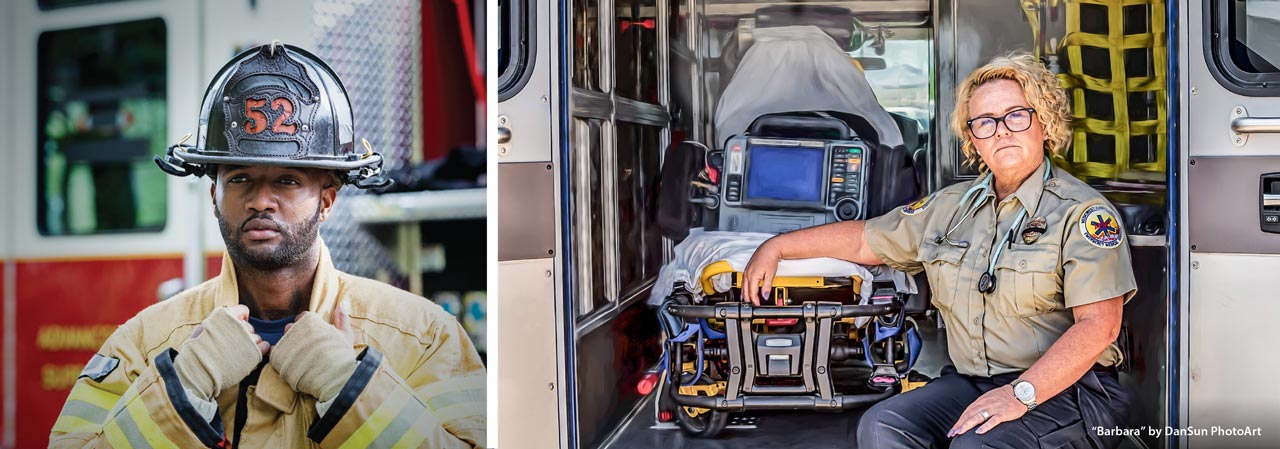“The only thing that’s been certain as the pandemic has evolved is a chronic state of change,” says Michael Bizzarro, PhD, LCSW, Clinical Director of First Responder Treatment Services at Penn Medicine Princeton House Behavioral Health. “First responders are typically wired to anticipate and prepare for any given situation or scenario. When you take that element out of the equation, it’s like they’re free falling.”
In addition to witnessing heart-wrenching situations, first responder concerns have ranged from having the right personal protective equipment to bringing the virus home to their families. As the adrenaline from the height of the pandemic begins to fade, it leaves room for post-traumatic stress to surface in the months ahead.
Dr. Bizzarro offers these tips for behavioral health professionals when counseling first responders in the aftermath of the pandemic:
A focus on changing the way one thinks about a situation can change both the situation and the way you think. A metaphysical concept suggests that thought is cause and behavior is effect—a simple but complex principle that when practiced can change one’s life. An example of this concept is, “Asking for help is a sign of courage/strength” (the thought), and “I starting seeing a mental health professional” (the effect).
Fear tends to live in the dark and die in the light. Identifying and discussing the specific source of fear can limit its power. A reminder that first responders are now putting specific safety principles into play when on the job also can help challenge fears.
Targeted self-care is now critical for survival, despite the fact that first responders often have a tendency to help others before themselves. New Jersey’s Resiliency Program even mandates first responders to take care of themselves so that they have the capacity to continue to take care of others.
Not everyone who experiences trauma develops post-traumatic stress disorder (PTSD). More than ever, first responders need tools for tuning in to their internal alert system. They may need help to recognize the physiological changes and thoughts that heighten with stress. First responders need skills to help them regulate their emotions, thoughts, and physical responses when a traumatic event triggers a psychological reaction. If they are aware of these responses and have tools to de-escalate them, they may be able to prevent the onset of PTSD.
If untreated, PTSD will impair a person’s ability to function. At its most acute phase, PTSD may require daily, intensive treatment or inpatient care. It is only when symptoms are managed that the underlying problem or cause can be treated.
Princeton House’s First Responder Treatment Services provides customized inpatient care for law enforcement officers, corrections officers, firefighters, military personnel, EMTs, and other first responders. Princeton House follows CDC guidelines for screening, PPE, and social distancing for patients and staff.
 While social distancing is in effect, Princeton House also is offering outpatient telehealth services three hours a day for three or five days per week, depending on acuity.
While social distancing is in effect, Princeton House also is offering outpatient telehealth services three hours a day for three or five days per week, depending on acuity.
For more information about services for first responders, visit princetonhouse.org/firstresponder or call 609.497.3355.
Featured on the montage above (right): “Barbara” by DanSun PhotoArt. Dan Sundahl is a firefighter, paramedic, and artist whose work can be seen on DanSunPhotos.com.
Article as seen in the Summer 2020 issue of Princeton House Behavioral Health Today.



